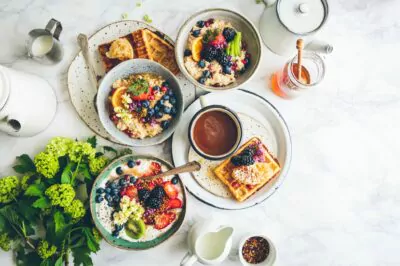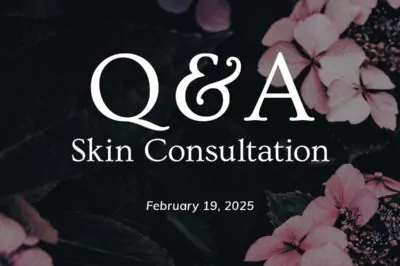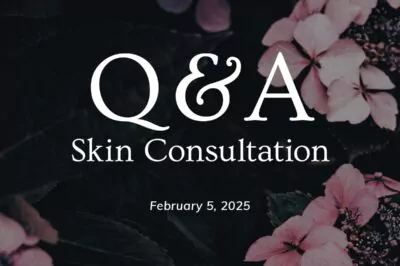How much of your life have you spent trying the latest diet fads and ‘lifestyle changes’, counting calories, obsessing over food and your body, stepping on and off the scale–only to still feel discouraged, tired and frustrated?
The more times you’ve repeated this cycle, the more you realize how unhealthy this is—not just for your physical health, but also for your mental and emotional well-being.
The truth is, fad diets and the pursuit of intentional weight loss only offer a quick ‘fix’–not a lasting solution. Did you know up to 95% of diets fail in the long term? Not only that, but studies also show that up to two-thirds of dieters gain back significantly MORE weight than they’ve lost.
In other words, dieting is actually a predictor of future weight GAIN! In the long term, we’re often creating the opposite of our intended outcome, yet keep futilely trying again and again. Does this sound familiar?
If you’re ready to:
- Swap dieting for sustainable, healthy eating habits
- Live the fulfilling life you so badly want for yourself
- Stop letting food obsession consume your thoughts
- Feel safe in your body, and trust yourself around food
- Unlearn all the negative thoughts and beliefs you learned from society, the media, family, and friends
- Live a life free of diets, restriction, and hating your body
Then the solution you are searching for is closer than you think! It’s called Intuitive Eating.
What is Intuitive Eating?
Intuitive Eating is an evidence-based, self-care eating framework with over 125 studies to date. It’s all about getting to know and trust your own body and learning to listen to its wisdom. Eating intuitively is a way of eating that has nothing to do with diets, meal plans, discipline or willpower.
Intuitive Eating is a process to help you get out of your head when it comes to food and body image, and instead, tune into the signals your body is sending. During this process, we also want to remove anything that takes away from your attunement to your body—like diets you’ve tried, food rules you’ve carried with you over the years, and negative body image.
So many of us feel guilt or anxiety about eating the ‘wrong’ things. We worry and beat ourselves up for that doughnut we had last week. Intuitive Eating helps break down arbitrary food rules and restrictions and external influences over what you can and can’t eat so you can focus on internal cues. It’s about relearning how to eat from the ground up!
3 Ways to Get Started with Intuitive Eating
1) Ditch the Diet Mentality
In this step, you do exactly as it says: reject the diet mentality. That means giving up any false hopes that any kind of restrictive diet, cleanse or plan will cause you to lose weight fast (and keep it off forever) and bring you a better life.
The truth is, you can learn how to accept your current body without it needing to shrink or change—really! A focus on weight loss and dieting only keeps you stuck in the belief that your weight is a measure of “who you are”—which is not true! Your weight does not define your value, worth, or who you are.
The idea of letting go of food rules and dieting is scary for most people, and may make you feel panicky. You probably have a ton of fears coming up like, “I will be out of control,” or, “If I stop dieting, I won’t stop eating,” or “I don’t know how to eat when I’m not dieting or following an eating plan.”
You know deep down that you can’t subject yourself to yet another failing diet, yet feel paralyzed and caught between two conflicting fears: “If I continue dieting, I’ll continue to feel like a failure”, and “if I stop dieting, I’ll feel lost.”
Here’s the truth: you are not a failure. Dieting has failed you. It doesn’t work, and it’s not because there’s anything wrong or bad about YOU as a person, or how you’ve gone about it. It’s because Diet Culture is based on a system of misinformation (remember: the research is very clear that intentional weight loss fails 95% of the time).
This paradigm shift is a huge process of unlearn and relearning, and it takes time. But the only way to truly build a healthy relationship with food and your body is to let go of the diet mentality that reinforces feelings of success or failure. The good news is that you can’t fail at Intuitive Eating! It’s all a learning process with guidelines, not black and white rules.
To get started: Unfollow all the social media accounts, and unsubscribe from all the email lists, that promote dieting, weight loss, or anything that makes you feel bad about yourself. Instead, follow those who promote Intuitive Eating and Health at Every Size so you can see positive inspiration when you’re on social media or in your inbox.
2) Make Peace with Food
This principle is all about giving yourself unconditional permission to eat all foods, and making all foods emotionally equivalent, where foods aren’t labeled as ‘good’ and ‘bad’.
There is no food—that’s right, NO FOOD—that is going to make or break your diet, health or body. Love chocolate and pizza? Great. Love kale and lentils? Also great.
For chronic dieters, this principle is one of the toughest, and takes a lot of unlearning and trust to truly make peace with food.
But we all know what happens when we tell ourselves that we’re “not allowed to” have or “shouldn’t” have a particular food: it often leads to extreme feelings of deprivation (and perhaps rebellion), which in turn, leads into uncontrollable cravings and often bingeing.
When we add morality to food and tell ourselves we can’t eat ____ because ____, we only make that food more tempting. We can try to avoid that food, but if and when we finally do “give in”, we end up feeling guilty. For many of us, that sets off a cascade of other “bad” eating decisions, where we feel ‘out of control’ around food, concluding we must be a failure. Starting to sound familiar?
The good news: this kind of panicky, desperate eating lessens and will likely disappear entirely once you give yourself full permission to eat all foods, at any time, no longer depriving yourself. Food just becomes food, without all the charge and fear, where it’s simply a source of nourishment, energy, and—dare I say—pleasure!
To get started: Make a list of foods you really like. Circle the foods you avoid for reasons Diet Culture taught you. Bring back one of the foods you circled this week and eat it with no judgment. Just get curious about how it tastes and feels in your body. Continue to give yourself permission to eat this food as often as you like.
Eventually, you’ll truly know that you have permission to eat this food whenever you want it, and the feelings of temptation and urgency to eat these foods will (eventually) disappear. That particular food loses its power (this is called habituation), where it becomes just one option out of many of the buffet that you can choose to eat if and when you want it—but the choice will NOT be driven from a place of deprivation or rebellion.
3) Honor Your Hunger
When you remove the overlay of guilt and morality from eating by making peace with food, it allows a stronger connection to your physical body, which in turn leads us to, overall, making nutritious choices for our body.
Part of connecting to our body is about honoring our hunger and fullness cues—which may be out of whack after years of dieting and food restrictions.
If you’re recovering from dieting, it’s likely that your body is in a starved state. It’s imperative that you work towards keeping your body nourished and biologically fed with energy (this includes foods that you may currently be avoiding, like carbs).
If you don’t keep your body fed, it can trigger a primal drive to overeat, where you’re eating more than what feels good in your body. Why? Because you’re starting at a deficit. Think about a starving child who finally gets something to eat and can’t consume that food fast enough. That’s essentially what’s happening in your body when you don’t eat enough—you get ravenous.
A lot of us call this feeling “hangry”, when we get so hungry that we start to get angry and irritable. This is called “primal hunger”, and we want to aim to eat BEFORE we get to this state.
Learning how to honor your first signs of hunger sets the stage for rebuilding trust with yourself and food.
How to get started: get familiar with how hunger feels in YOUR body. Many of us think of hunger only being in our stomachs, when we feel hunger pangs or hear grumbles. But hunger can be a range of bodily sensations and moods, like a slight headache, brain fog, irritability, low energy, and so on. When you first notice a sign of hunger, eat. What does hunger feel like to you?
Next Steps to Get Started with Intuitive Eating
Are you ready to be done with diets? Do you want to improve your relationship with food and your body to be your healthiest self? Do you want freedom to eat what sounds good to you, freedom to stop obsessing over food and your body so you can simply be present with your life, freedom to love and respect your body, and—ultimately—the freedom to live a fulfilling life on your terms?
f you’re reading this after the challenge, you can join our free supportive Facebook community where I go live weekly with training, education, and Q&As, or you can set up a free 30-minute discovery call with me here to talk about your personal needs and goals. You can also download this free Intuitive Eating assessment to see how you score as an Intuitive Eater and where you can improve!
I look forward to helping you reclaim your body and your life in 2021!








Leave a Reply